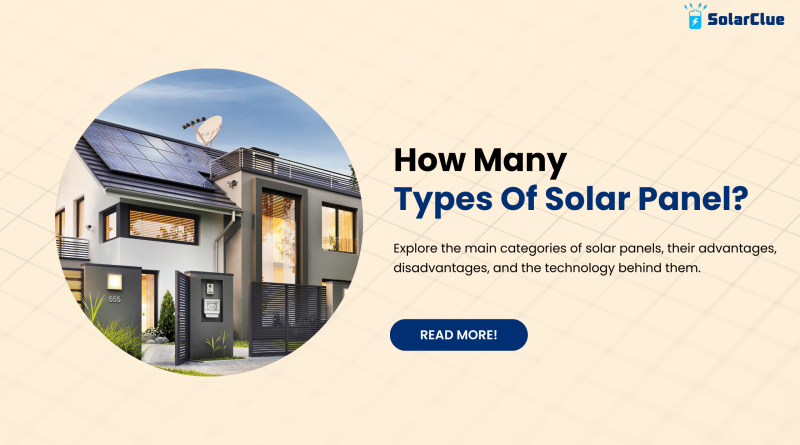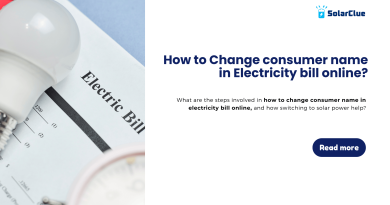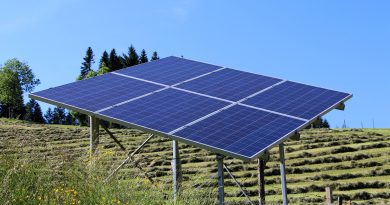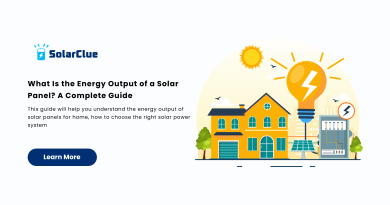How Many Types Of Solar Panel?
Solar energy has become a significant alternative energy source, with various types of solar panels available to meet different needs. This blog explores the main categories of solar panels, their advantages, disadvantages, and the technology behind them.
Table of Contents
- 1 The Evolution of Solar Panel Technology
- 1.1 Primary Categories of Solar Panels
- 1.2 Comparing the Efficiency of Different Panel Types
- 1.3 Comparison of Solar Panel Types
- 1.4 Factors Affecting the Lifespan of Solar Panels
- 1.5 Choosing the Right Solar Panel for Specific Needs
- 1.6 Emerging Solar Panel Technologies and Their Potential
- 1.7 Conclusion
- 1.8 FAQ Section
The Evolution of Solar Panel Technology
The development of solar panel technology has evolved from simple silicon cells to advanced designs that maximize energy production. Early panels had low efficiency, but technological advancements have significantly improved their performance, making solar power a viable option for homes, businesses, and large-scale power plants.
Primary Categories of Solar Panels
Monocrystalline Solar Panels
Technology: Made from a single continuous crystal structure using the Czochralski process.
Advantages:
- High efficiency (15-20%)
- Space-efficient due to higher power output per square foot
- Long lifespan (25+ years)
- Sleek, black appearance
Disadvantages:
- Higher cost compared to other types
- Performance can decrease at higher temperatures
Polycrystalline Solar Panels
Technology: Made from multiple silicon crystals melted together.
Advantages:
- Lower cost than monocrystalline panels
- Relatively good efficiency (13-16%)
- Robust and durable
Disadvantages:
- Lower efficiency than monocrystalline
- More space required for the same power output
- Bluish hue, less aesthetically pleasing to some
Thin-Film Solar Panels
Technology: Created by depositing one or more layers of photovoltaic material onto a substrate.
Advantages:
- Lightweight and flexible
- Lower cost to produce
- Performs better in low-light conditions and high temperatures
Disadvantages:
- Lowest efficiency (10-12%)
- Shorter lifespan (10-20 years)
- Requires more space for the same energy output
PERC Solar Panels
Technology: Passivated Emitter and Rear Cell technology adds a layer to the rear surface to reflect light back into the cell.
Advantages:
- Higher efficiency than traditional monocrystalline and polycrystalline panels (18-22%)
- Better performance in low-light conditions
- Improved temperature coefficient
Disadvantages:
- Slightly higher cost than traditional panels
- Newer technology, less long-term data available
Comparing the Efficiency of Different Panel Types
Efficiency is a crucial factor when selecting solar panels, as it determines how much energy a panel can produce from sunlight. Monocrystalline panels typically offer the highest efficiency, followed by PERC, polycrystalline, and thin-film panels.
Comparison of Solar Panel Types
| Type | Efficiency | Durability | Cost | Best For |
|---|---|---|---|---|
| Monocrystalline | 15-20% | 25+ years | High | Limited space, high efficiency |
| Polycrystalline | 13-16% | 20-25 years | Moderate | Larger spaces, budget-friendly |
| Thin-Film | 10-12% | 10-20 years | Low | Large areas, lightweight |
| PERC | 18-22% | 25+ years | Moderate | High efficiency, residential use |
| Bifacial | Up to 27% | 25+ years | High | Maximize ground/roof reflection |
Factors Affecting the Lifespan of Solar Panels
Several factors influence the longevity of solar panels, including:
1. Quality of materials: Higher quality materials usually mean a longer lifespan.
2. Manufacturing process: Advanced processes can enhance durability.
3. Environmental conditions: Extreme weather, temperature fluctuations, and exposure to UV rays can affect performance.
4. Maintenance: Regular cleaning and maintenance can prolong panel life.
Choosing the Right Solar Panel for Specific Needs
When selecting a solar panel, consider:
1. Budget: Thin-film panels are more affordable, while monocrystalline panels are more expensive but efficient.
2. Space: Limited space may require more efficient panels like monocrystalline or PERC.
3. Aesthetics: The appearance of panels may be important for residential installations.
4. Energy needs: Higher energy requirements may necessitate more efficient panels.
5. Climate: Panels that perform well in high temperatures or low-light conditions may be better for certain regions.
Emerging Solar Panel Technologies and Their Potential
Innovations in solar panel technology continue to emerge, promising higher efficiency and new applications:
1. Bifacial Solar Panels: Capture sunlight from both sides, potentially increasing energy output by up to 27%.
2. Perovskite Solar Cells: Offer high efficiency and lower production costs, but need further development for long-term stability.
3. Organic Photovoltaics (OPVs): Lightweight and flexible, suitable for new applications but currently lower efficiency.
Conclusion
Choosing the right solar panel involves understanding the different technologies and their respective advantages and disadvantages. Whether for residential, commercial, or industrial applications, there’s a solar panel to meet your needs. By considering factors such as efficiency, cost, durability, and specific requirements, you can make an informed decision that will maximize the benefits of solar energy.
Here at SolarClue®, we offer a smart, practical, and “beautiful” solution. You will be answered for all the questions related to Solar.
We provide all kinds of brands that are the Best Solar panels in India.
If you are the one who is planning for the solar power system. Don’t hesitate to contact our team!
Looking forward to empowering you with solar energy, just like hundreds of our other clients!
FAQ Section
1. What are the most efficient types of solar panels?
Monocrystalline and PERC panels are currently the most efficient types available.
2. How long do solar panels last?
Most solar panels have a lifespan of 25-30 years, with proper maintenance.
3. Are thin-film solar panels suitable for residential use?
Thin-film panels are typically used in large-scale or flexible applications, but can be used residentially if space is not a constraint.
4. What is the main advantage of PERC solar panels?
PERC panels offer higher efficiency and better performance in low-light conditions compared to traditional panels.
5. How do I choose the best solar panel for my home?
Consider your budget, available space, energy needs, and local climate to determine the most suitable type of solar panel.




